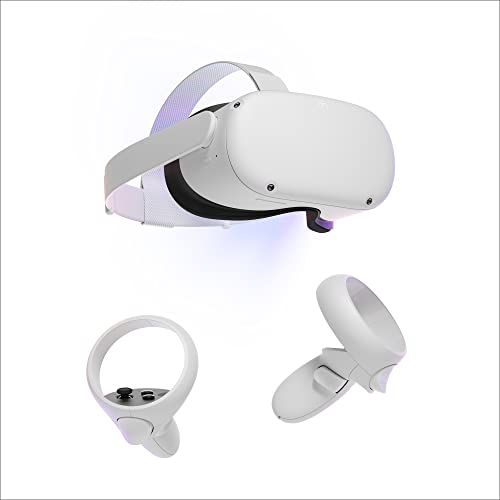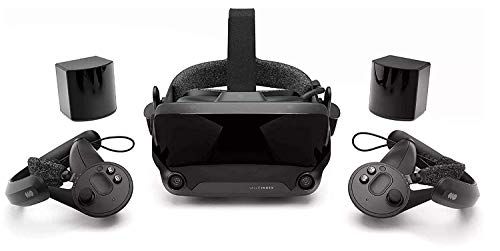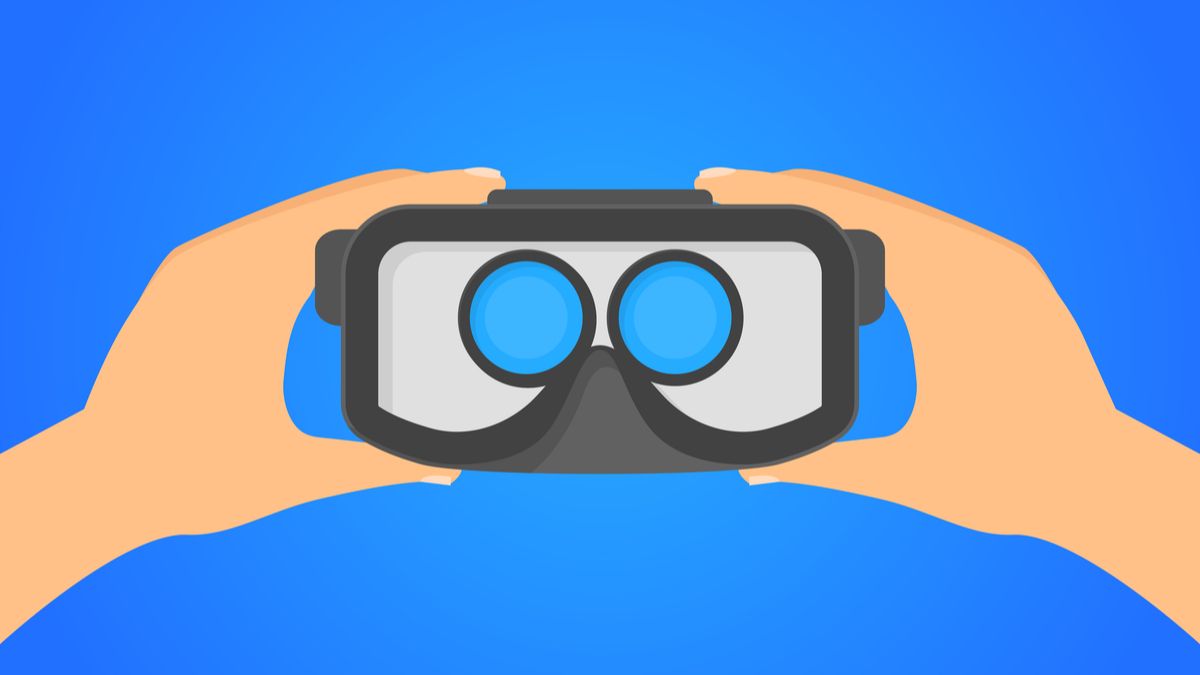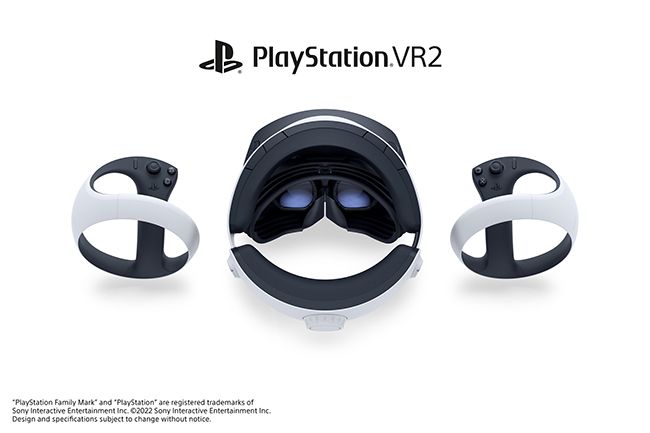Quick Links
If you're looking to broaden your gaming horizons, you might be tempted to invest in a virtual reality headset. But VR isn't simply an extension of the games you may already enjoy, it's a whole new medium that comes with its own pros and cons.
Questions to Ask Before Buying a VR Headset
Answering a few simple questions before you invest in a headset (be it cheap or pricey) will help you decide whether or not VR is for you. It will also guide you in which direction to go in.
Ask yourself how much interest you have in the medium. VR games are their own unique experiences, and while many "flat" games get VR ports, the best VR games are designed from the ground up for virtual reality. These games can be in-depth like Valve's Half-Life: Alyx, humorous like Job Simulator, or highly focused on (for lack of a better word) their "gimmick" like Beat Saber.
You'll probably need to invest more money into building up a catalog of games. To buy a VR headset without embracing some of the best games would see you miss out on experiences that the platform does best. So make sure you factor this into your purchasing decision and allow for some room in your budget for software as well as hardware.
Budget is another important aspect. VR can be cheap and cheerful, but it still requires you to commit a few hundred dollars at a minimum. Depending on your tastes, that money might be better spent elsewhere on a new monitor, better cooling, or more of the games you already love to play.
You should also examine what hardware you already have (if any at all). There are two main types of VR headsets available: those that require additional hardware, and those which operate as standalone units. A headset that requires additional hardware, like the HTC Vive Pro 2 or Valve Index, must be connected to a fairly powerful PC.
The exception here is the PSVR, which uses the aging PlayStation 4 as its base hardware to deliver a somewhat dated VR experience. At the time of writing, PCs provide a more premium VR experience, with the PSVR lagging in the graphics, performance, and immersion due to its age.
If you don't have any hardware, nor the loose cash to spend on it, you'll have to opt for a standalone headset like the Meta Quest 2 (formerly called the Oculus Quest 2). It's a $299 all-in-one VR system that allows you to scratch the VR itch without worrying about having a high-end PC. There are virtually no space requirements, either; you can sit on your sofa in a tiny apartment and have a great time, which is one reason the Quest 2 has sold so well.

Meta Quest 2 — Advanced All-In-One Virtual Reality Headset — 128 GB
For an all-in-one VR experience that requires virtually no setup, look no further than the Quest 2 (known as the Oculus Quest 2 before Facebook's big rebrand).
The Quest 2 doesn't require sensors to be placed in the room, and thanks to a software update it can be used as a tethered VR headset with a gaming PC if you own the right cable. The Quest 2 can even allow for wireless VR thanks to an in-built battery, which gives you unparalleled freedom in terms of movement in the VR space.
Deciding Factors: Budget, Hardware, and Expectations
For most, budget will be the main deciding factor. The Quest 2's $299 pricetag is hard to beat, allowing you to strap in and have a good time without breaking the bank. It's a great investment for anyone who isn't sure whether or not VR is for them, particularly when compared with the $999-$1,500 Valve Index (for a full controller and base station setup). So is there any reason to spring for a top-tier option?
While the Index costs half as much as the PC you'll need to use it, there's something to be said for the premium experience it delivers. Valve's finger-tracking technology is one of the most impressive parts of that VR system, providing a tactile VR experience that makes simple actions in-game (like reloading a weapon, or writing with a marker) all the more immersive.
The Index has a refresh rate of up to 144Hz, though you'll need a PC that can reach high enough frame rates to truly take advantage of this. Higher framerates help avoid motion blur and create a more responsive experience. The Quest 2 can hit 120Hz, but the built-in hardware can struggle to get anywhere near 120 frames per second in most games when running natively.
This feeds into other deciding factors, like hardware and expectations. The hardware you already own (or are prepared to invest in) will also play a large part in your decision. If you have a high-end PC ready to go, and you're confident you can hit the frame rates that make the Valve Index such an enticing prospect, the investment may be easier to swallow.

Valve Index Full VR Kit (Latest Release) (Includes Headset, Base Stations, & Controllers)
Get the best VR experience with Valve's Index headset. This kit features everything you need to get started: the headset, sensors, and award-winning controllers.
But maybe you don't own a PC at all, or you own an older PC and you're waiting for an upgrade. Perhaps you've got an Xbox or Nintendo Switch as your main gaming platform, and you're curious about giving this VR thing a shot. It's hard to argue with the $299 Quest 2 as a jumping-on point.
For PlayStation owners, the PSVR is still a valid choice, but it's one that you might want to hunt for on the second-hand market at this stage. Sony has promised a sequel is in the works (for PlayStation 5), and while Sony's VR catalog is impressive in terms of the number of games available, the platform is clunky with lackluster controllers and a reliance on old hardware like the PlayStation Camera and proprietary adapters for use on the PlayStation 5.
Finally, the higher your expectations of a truly immersive and impressive VR experience, the more you should be prepared to spend. If only the best will do, a high-end gaming PC and something like the Valve Index is what you should shoot for. If you just want to experience Beat Saber or explore Google Maps in VR to see what the fuss is about, the Quest 2 is more than enough (but don't expect it to blow your socks off).
The Quest 2 Might Be Your Best Choice
If you go for a more sophisticated VR setup, you'll need some additional space to mount sensors. All too often this means dedicating a room to being a VR play space. Free space is important for immersion in more physical titles, which means if you're tight on space then you might want to reconsider whether your money is well-spent. A basement or loft space that you can repurpose is ideal.
This is what makes a standalone headset like the Quest 2 such a tempting prospect. If all you want is to dip your toes without going all-in on sensor bars, high-end headsets, and the hardware required to drive something like the Valve Index, get a Quest 2 and decide whether this hobby is for you.
Motion sickness is another issue that plagues VR, though modern headsets with higher refresh rates have helped to reduce the problem. If you already get motion sickness playing on a monitor or a TV then you might want to find a way to test-drive a VR headset before you reach for your wallet. If you can't find a friend or store that will let you do that, a cheaper investment on something like the Quest 2 won't see you spend a lot of money on something that makes you throw up after 10 minutes of use.
Some games attempt to tackle the problem by eliminating movement that doesn't feel natural. For example, first-person shooters often allow the player to "warp" to a new perspective, rather than walking as you would when playing on a PC. This allows the player to trade immersion for a more comfortable playing experience. It's also worth pointing out that some people are lucky and never experience motion sickness in VR.
Finally, pay attention to the types of games you enjoy and how they may benefit from VR. While rhythm action games like Beat Saber or beat 'em ups like GORN are undoubtedly fun, you might not want to spend very long playing them. The Quest 2 lets you experience both standalone titles as well as richer VR experiences using a PC if you have the Quest 2 link cable.
VR is arguably a platform that rewards those who love to try things out. If you often find yourself combing Steam or the App Store for the latest releases just to sample what's out there, a VR headset will unlock so many more experiences for you. Take a look at the Meta Quest app store and judge for yourself.
Should You Wait for a Better Headset?
The Valve Index is often touted as one of the best VR experiences on the market for its high refresh rate displays, tactile finger-tracking controllers, and ability to make the most of fantastic VR experiences like Half-Life: Alyx. But there's a new generation of VR headsets on the horizon, so it may be waiting particularly if you're a console gamer.
Sony's PSVR 2 is the follow-up to the company's last-generation PSVR headset that relied on the PlayStation 4. The next version will rely on Sony's current flagship, the PlayStation 5 features a laundry list of improvements. The new headset won't require a separate camera module, instead of using four cameras mounted on the headset to track movement.
The headset will have two high dynamic range (HDR) OLED displays, delivering a resolution of 2,000 x 2,040 per eye at up to 120Hz (though not all games will reach such a lofty framerate). Eye-tracking will be used to enable true foveated rendering, allowing the headset to better use the rendering budget to focus on the object you're looking at.
We don't yet know what it will cost or when it will arrive, but we do know that if Sony delivers on its promises that PSVR 2 will set a new benchmark for entry-level VR headsets. This will have a knock-on effect and place pressure on the rest of the industry to improve their own offerings. This is great for the VR space as a whole.
With Meta going all-in on VR with their "metaverse" spiel, the Quest 2 is also bound to have a successor before long. Expect better performance, higher fidelity, improved tracking, longer battery life, and other iterative improvements. By the end of 2021, the Quest 2 had shipped 10 million units, with speculation that it was being sold at a loss (just to get headsets on people's faces).
VR Won't Replace "Flat" Gaming Any Time Soon
There was a lot of hype about the promise of VR replacing the standard gaming experience in the medium's early days, but it's clear now that won't be happening any time soon. VR is another way to play, and it's an exciting format that offers unbeatable immersion and unique experiences. Check out our top-rated VR headsets (and the best VR games) to figure out which is right for you.
But if you're not particularly interested, can't afford the headset you want, or simply don't have the room then you won't need to worry about "flat" gaming going anywhere any time soon. You may even want to consider a new gaming monitor instead.


